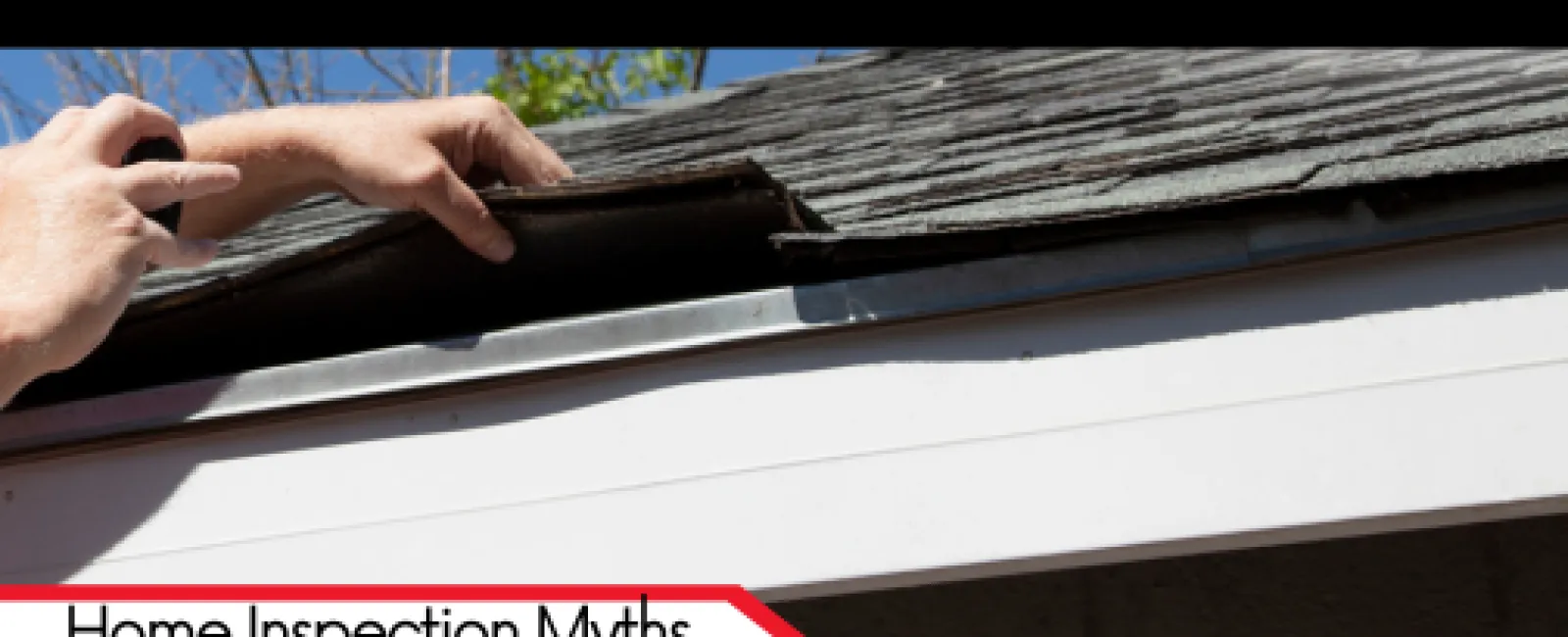Buying or selling a home is one of the most significant financial decisions a Georgia resident will ever make, and yet many people still rely on outdated assumptions or hearsay when it comes to the home inspection process. Whether you live in Atlanta, Alpharetta, or anywhere in between, misconceptions about inspections can cause buyers to overpay, sellers to miss critical issues, and both parties to experience unnecessary stress. As a result, understanding the truth behind these myths isn't just helpful—it can save thousands of dollars and protect one of your biggest investments. The real estate market moves quickly, but skipping the details around an inspection or relying on incorrect information can have long-term consequences.
For Georgia homeowners, the stakes are particularly high. With our state's diverse mix of historic homes, new construction, humid climate, shifting soils, and rapid urban growth, the need for thorough and accurate Georgia home inspections cannot be overstated. Trusted local companies like LunsPro Inspection Group, known for serving communities from Atlanta to Alpharetta and providing Athens Residential and Commercial Inspections, exist to give homeowners clear, unbiased insights into a property's true condition. Unfortunately, many buyers and sellers make decisions based on myths that minimize the importance of a high-quality inspection. In this article, we break down the most common misconceptions and explain why understanding the truth can protect your wallet and the future value of your property.
Myth #1: A Home Inspection Is the Same as an Appraisal
One of the most common—and costly—misunderstandings is the belief that a home inspection serves the same purpose as a home appraisal. In reality, they are completely different. An appraisal determines the market value of a home for lending purposes, while a home inspection evaluates the physical condition of the property. An appraiser is focused on value and comparable sales; a licensed home inspector is focused on identifying defects, safety issues, and potential future problems.
For a Georgia buyer, confusing the two can lead to assuming the home is in good shape simply because the appraisal comes back favorably. Homes in Atlanta and surrounding areas may hold high market value due to location, school district, or demand, but those factors say nothing about structural integrity, electrical hazards, or roof life expectancy. Companies like LunsPro Inspection Group, who specialize in detailed Georgia home inspections, routinely uncover hidden problems in homes that appraise extremely well.
Myth #2: New Construction Doesn't Need an Inspection
With rapid development across Alpharetta, Atlanta, and Athens, new construction homes are more popular than ever. Unfortunately, many buyers assume "brand new" means "problem-free." This myth can be incredibly costly. Even the best builders can make mistakes, and fast-paced construction timelines increase the chances of incomplete or improperly installed components.
In Georgia, it's not uncommon for new homes to have issues like improperly installed flashing, HVAC systems that haven't been balanced, missing insulation, or electrical wiring errors. A third-party inspector provides a fresh set of eyes with no ties to the builder. LunsPro Inspection Group often performs phase inspections—foundation, pre-drywall, and final—for buyers who want to ensure their new home is built to standard. Skipping these can result in expensive repairs that the builder could have corrected before closing if caught early.
Myth #3: The Seller Will Tell You Everything You Need to Know
While disclosure laws require sellers to reveal known issues, they are not obligated to investigate hidden ones. Many sellers are not aware of problems behind walls, in attics, or under homes—especially in older Georgia properties. Additionally, some sellers unintentionally downplay or overlook issues simply because they don't understand their significance.
For example, a homeowner in Atlanta may think occasional basement dampness is "normal," when in fact it may point to drainage problems, foundation cracks, or grading issues. A seller in Alpharetta may assume slight flickering lights are just a common quirk, not realizing they could indicate an overloaded electrical system. Athens Residential and Commercial Inspections performed by trained professionals can uncover these problems long before they turn into costly repairs for the buyer.
Myth #4: Home Inspectors Are All the Same
Another myth that can cost homeowners thousands is the idea that all home inspectors provide the same quality of work. In reality, experience, training, equipment, and thoroughness vary dramatically between companies. Georgia does not require home inspectors to be licensed, which means buyers must be selective when choosing a provider.
A highly qualified company like LunsPro Inspection Group goes beyond the basics by using advanced tools such as thermal imaging cameras, moisture meters, aerial drones for roof inspections, and sewer scopes when needed. Their team has deep knowledge of construction standards, local building codes, and common defects found in Georgia homes. Relying on an inexperienced or minimally trained inspector can lead to major issues being overlooked—issues that could later cost thousands to repair.
Myth #5: If the House "Looks Good," You Don't Need an Inspection
A home's appearance can be deceiving. Fresh paint, updated fixtures, and clean staging do not guarantee structural soundness or mechanical reliability. Many serious defects are invisible to the untrained eye, such as:
-
Hidden water damage
-
Slow plumbing leaks
-
Electrical hazards
-
Termite activity
-
Roof deterioration beneath shingles
-
HVAC malfunctions
In Georgia's humid climate, water-related issues and wood-destroying organisms are especially common. A property in Atlanta or Alpharetta may look flawless on the surface while harboring costly problems beneath. Professional Georgia home inspections are designed specifically to reveal what cannot be seen during a casual walk-through.
Myth #6: Inspectors Can Predict Future Issues Exactly
A quality inspector can identify signs of deterioration, improper installation, or potential failure, but they cannot predict precise timelines. For example, an inspector may note that a water heater is near the end of its expected life, but cannot guarantee whether it will last two more months or two more years.
What an inspector can do is give buyers a realistic understanding of current condition, expected lifespan, and recommended next steps. For sellers, this insight can help avoid surprises during negotiations. Teams like LunsPro Inspection Group provide detailed explanations and clear documentation, helping clients plan for future expenses and budget wisely.
Myth #7: Minor Issues Aren't Worth Noting
Some people believe only "big ticket" items matter in a home inspection. However, small issues can add up—or point to larger underlying problems. Loose railings, missing GFCI outlets, minor cracks, and drainage concerns may seem insignificant at first glance, but they can turn into major expenses if left unaddressed.
For Georgia homeowners, small moisture-related issues are particularly risky. A minor leak in an Atlanta home, for example, can quickly escalate due to heat and humidity. Mold growth, rot, or pest infestations can develop in a matter of weeks, not months. Comprehensive reporting from an inspector helps ensure no detail is overlooked.
Myth #8: Home Inspections Delay the Buying Process
Some buyers fear that scheduling an inspection will slow down their closing timeline. In reality, inspections are completed quickly—often within a few days of being ordered—and reports are typically delivered the same day or within 24 hours.
Furthermore, skipping an inspection can lead to far greater delays down the road. Unexpected repairs, safety hazards, or undisclosed defects discovered after purchase can result in legal disputes, insurance issues, or expensive emergency repairs. In fast-moving markets like Atlanta and Alpharetta, the minor time investment is well worth the long-term protection.
Myth #9: Repairs Found During an Inspection Must Be Fixed by the Seller
There is a misconception that sellers must fix every item an inspector finds. In Georgia, this is not true. Inspection findings open the door to negotiation, but they do not force a seller to make repairs. In many cases, buyers and sellers agree on alternatives such as:
-
Price reductions
-
Closing cost credits
-
Repair allowances
-
As-is purchase agreements
A detailed inspection report from a reputable company like LunsPro Inspection Group gives both parties the information needed to reach fair compromises. For sellers, addressing concerns proactively can also prevent deals from falling through.
Myth #10: A Home That Passed Inspection Once Doesn't Need Another
Homes age, systems wear out, and conditions change. A house that passed inspection five years ago may now have new issues due to weather exposure, renovation work, or normal wear and tear. Georgia's climate contributes to shifting soil, wood rot, and weather-related damage that can develop quickly.
Even if an owner keeps the home well maintained, mechanical systems such as HVAC units, water heaters, and roofs all have limited lifespans. Regular Georgia home inspections, especially before listing a home for sale, can reveal issues early and help prevent costly surprises.
Home inspections play a critical role in the real estate process, yet myths and misunderstandings continue to influence how buyers and sellers approach them. Believing that inspections are unnecessary for new construction, relying solely on a home's appearance, or assuming all inspectors are the same are mistakes that can cost thousands of dollars—or more. Georgia homeowners, particularly those in rapidly evolving markets like Atlanta, Alpharetta, and Athens, need accurate information and reliable data to make informed decisions. This is where professionals such as LunsPro Inspection Group provide exceptional value through their comprehensive Athens Residential and Commercial Inspections and broader services across the state.
As you navigate buying or selling a home in Georgia, recognizing and rejecting these common myths can help protect your investment and ensure a smoother, more transparent transaction. An inspection is more than a formality—it's a safeguard against unexpected issues, hidden defects, and unnecessary expenses. Whether you're preparing to list your property, evaluating a potential purchase, or simply wanting to better understand the condition of your home, the insights gained from a professional inspection are invaluable. Trust facts over myths, and rely on reputable experts to guide you through the inspection process with clarity and confidence.

